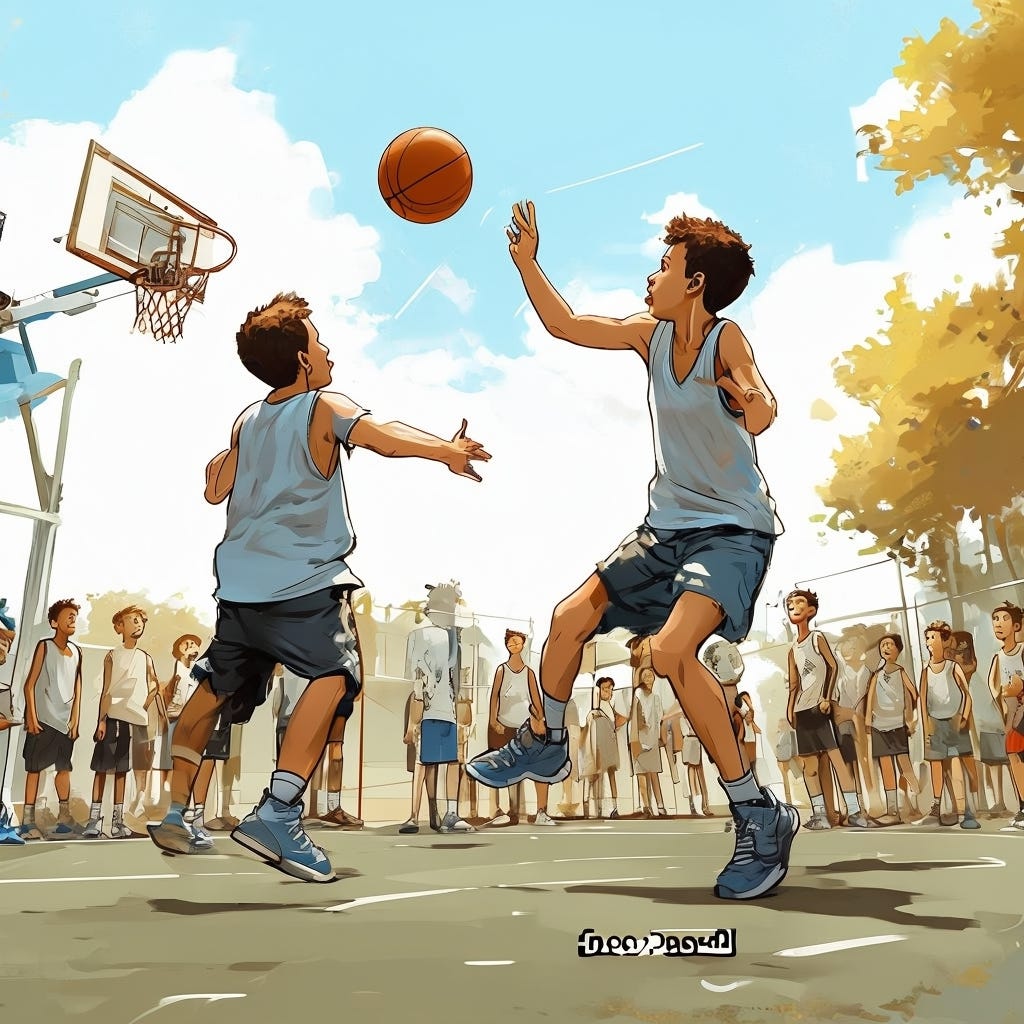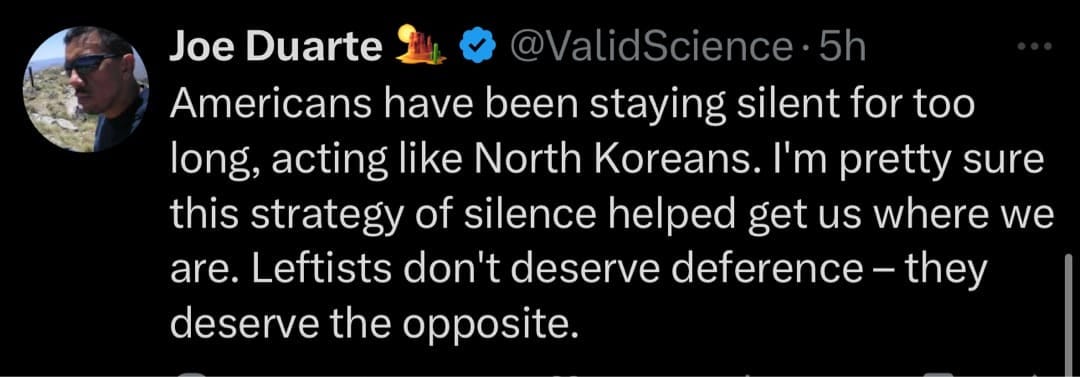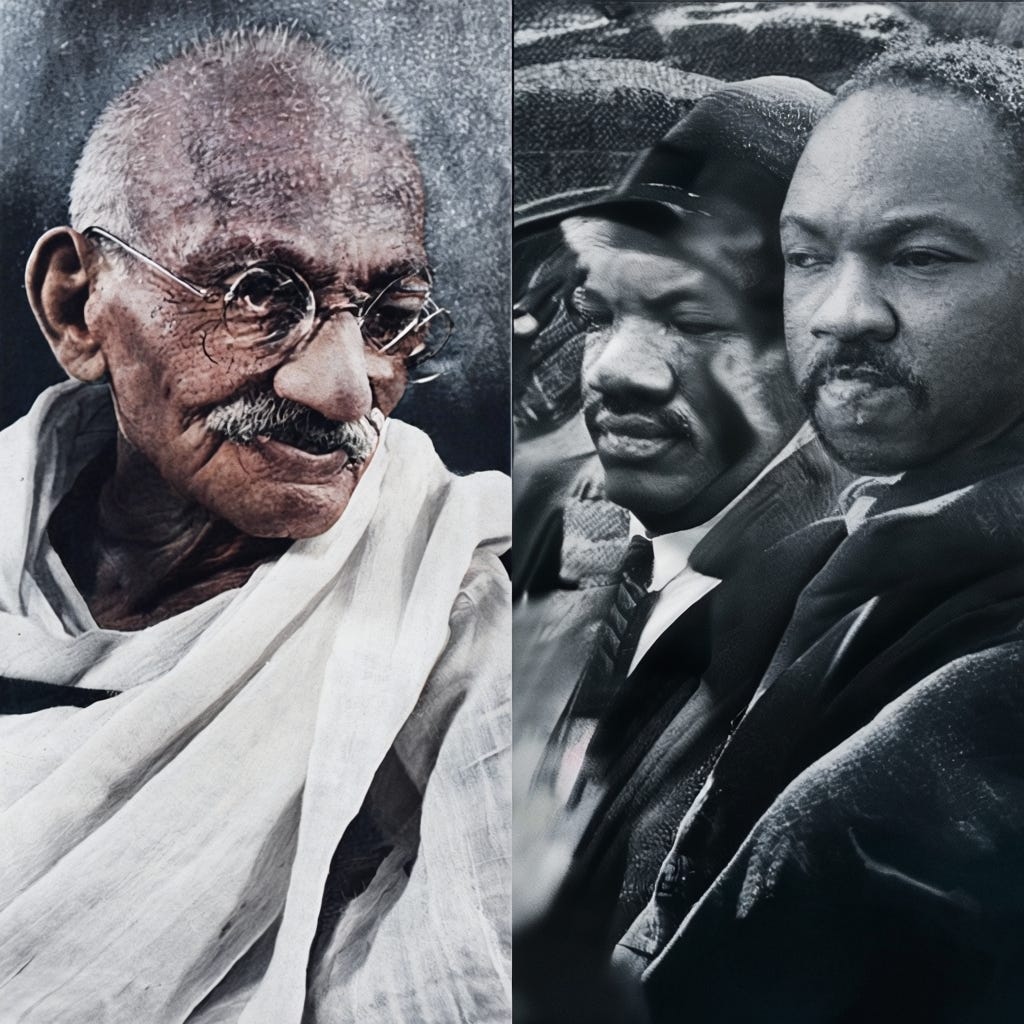Living in a Blue Area: Playground Politics to Cancel Culture
Why Metaphorically Nonviolent Resistance - Nonparticipation - Is often the Best Response if you find yourself in an anti-Trump struggle session
Back in my Psychology 101 days, I recall I had a developmental psychology professor1 who was an appealingly maternal lady who had a knack for making even dry research personal, and who introduced us to some lady named Carol Gilligan who was a psychologist (and of course, a feminist!) who did work on gender differences in moral reasoning.

Gilligan argued that men and women approach ethical dilemmas differently: men tend to favor logic, abstract principles, and universal rules, while women focus on the “ethics of care,” - things like relationships and the emotional nuances of specific situations. Many years later, after I became acquainted with
, who turned me on to the work of psychologist Simon Baron-Cohen (yes, he is related to “Borat,”) which, imho really extends and, shall we say, systematizes what Gilligan identified in some of her seminal work many decades ago (briefly, Baron-Cohen thinks that men tend to be systematizers and women tend to be empathizers as their primary modes of understanding and coping with the social world).Gilligan envisioned her work as a counterpoint to Lawrence Kohlberg’s stage theory of moral development, which she saw as male-focused and not inclusive of the female perspective, so she developed her work as an answer to his, fleshed out in her best seller, In a Different Voice, which was published in 1989. A core argument she made was that for society to progress, we needed to have both the female and male moral “gendered” perspectives equally represented in society, in balance.
Many decades later, I'd argue we've witnessed a pendulum swing far beyond balance, resulting in the near-total dominance of relational aggression as our go-to conflict resolution strategy. This approach, historically associated with women, now operates with almost no countervailing force.
Boys in playgrounds, in their clumsy way, used physical threats to establish order – a crude but direct form of "systematizing" where dominance was visibly proven, most prosaically with athletics (which is a relatively physically safe way for boys to compete with each other and establish their dominance heirarchies).
Girls, on the other hand, rely on relational aggression: ostracizing, gossiping, and strategically deploying social exclusion.
While less physically harmful, it's a far more personal form of social control, precisely because it attacks one's sense of belonging and social status. This approach maps neatly onto Simon Baron-Cohen’s Empathizing-Systemizing (E-S) theory; one approach (the stereotypically male one) tends to favor rules and abstract systems, whereas the other (the stereotypically female one) tends to focus on relationships and emotional nuance.
Now, this type of aggression isn't confined to childhood playgrounds anymore. Instead, it has become the primary tool for enforcing social hierarchies in adult society, amplified by technology and weaponized through social media. This relational aggression prioritizes emotionality and social connection above logic and abstract principles, which is all well and good—unless it is THE ONLY way to handle social disputes.
The result? As we are all aware, we’ve been awash in a culture of “cancellation,” ideological enforcement, and ritualistic scapegoating that is eroding our ability to function as a cohesive society.
The Problem with Relational Aggression at Scale
Relational aggression isn’t new.
As my professor explained back then, girls often resolve conflicts by excluding or ostracizing others from social groups - they spread rumors and gossip, do character assassination, etc. rather than engaging in direct confrontation.
While boys might push or shove to settle disputes (a physical aggression that’s often loud but short-lived), relational aggression works more insidiously. It cuts deeper. I recall my developmental psychology professor, in a moment of frank honesty that I appreciated - argued that relational aggression - relational violence - leaves longer-lasting psychological scars, does longer lasting damage, because it attacks one’s social standing and sense of belonging. Sure, a physical fight if it goes south can be disfiguring (this occasionally happened in schoolyard fights when I was a kid) - but the emotional scars of what girls do to each other can last far, far longer. Girls can be brutal.
Fast forward to now.
This dynamic has been utterly supercharged by digital platforms. Both for younger boys and girls (teens, etc.) and for adults, social media has turned what used to be whispered gossip into public spectacle.
Cancel culture is essentially relational aggression on steroids—a system where reputations are destroyed overnight based on accusations that often lack due process or proportionality.
The problem isn’t just the method; it’s the lack of balance. We’re awash in a world where relational aggression has been the primary method for solving social disputes and social problems.
As Simon Baron-Cohen’s Empathizing-Systemizing theory suggests, men typically excel at systematizing—creating logical frameworks and applying consistent rules—while women tend to emphasize empathizing, prioritizing emotional understanding and interpersonal harmony.
Sure, both approaches have their strengths, but when society leans too heavily on one at the expense of the other, dysfunction arises. Today’s over-reliance on empathizing has led to a culture where feelings trump facts and relational aggression runs unchecked because there’s no systematizing framework to moderate it.
The Case for Nonviolent Resistance to Threats of Relational Violence
So how do we respond?
Some argue for fighting fire with fire—meeting relational aggression with equal force or even escalating into outright hostility.
In practice, that means if you find yourself at a gathering of extended family, or with work acquaintances, and suddenly an impromptu anti-Trump struggle session starts forming around you, you do what makes sense. You push back, you argue for what is rational, and true, and sensible. You make it clear you are not party to ideological enforcement, and not part of their struggle session. Boys cannot become girls. Masks don’t work. Minorities can be racist.
This brings me to a personal example I shared recently on social media:
So you find yourself in the aforementioned impromptu ideological struggle session—a situation where anti-Trumpism or some other charged topic becomes the focus of conversation. In such moments, your options feel limited:
Option 1: You nod along in agreement, perhaps even verbalizing token agreement with the monstrous and absurd. But doing so eats at your soul—the psychological toll is immense because you’re betraying your own sense of truth.
Option 2: You push back rationally or attempt to debate the points being made. However, this rarely works; instead of fostering dialogue, you’re likely to become the scapegoat—the pharmakos2—ritually ostracized as an embodiment of everything wrong with society.
Neither option is appealing.
That’s why I - particularly if you live in a blue state or blue area - advocate for a third way: non-participation.
Sit silently. Don’t nod along; don’t argue back. Simply refuse to engage in the ritual altogether. It’s not about cowardice—it’s about denying relational aggressors the fuel they need to perpetuate their cycle of control and ostracization. Don’t play into their game.
Responding to Criticism: Is Silence Enough?
Of course, not everyone agrees with this approach. Commentators like Joe Duarte argue that silence is tantamount to complicity—that Americans have been “acting like North Koreans” by staying quiet for too long:
While I understand this frustration, I think it misses the point of nonviolent resistance. Silence isn’t about submission; it’s about refusing to play by their rules. When you engage directly—whether through agreement or argument—you validate the terms of their ideological enforcement game.
If we see these absurd, anti-Trump, anti-republican struggle sessions as what they are, simply potential opening volleys in a scapegoating ritual that has an implied threat of relational violence - then realize that the entire system is set up to answer violence (of the relational kind) with more violence. They want you to respond. If they call republicans “racist” for opposing the race communism of DEI, they want you to call them “racist” back, so they can scapegoat, ostracize and exclude you. Relational violence is what they know .
This is exactly why the great civil rights struggles of our age advocated non violent resistance. This works for both physical violence, and I would say relational violence as well. Don’t participate in the system.
Don’t validate the rules of their little ideological struggle sessions, or play into whatever might come after if you choose to opt out. Don’t play the game.
Why We Need More Systematizing
That said, non-participation alone isn’t enough to fix our broader cultural dysfunction—it’s just a survival strategy for individuals caught in toxic situations. What society really needs is a corrective: a return to systematizing - male -principles that prioritize logic, proportionality, and clear rules over feelings-based enforcement.
Conclusion: The Path Forward
The dominance of relational aggression in today’s culture is tearing at the fabric of our society. Cancel culture and ideological enforcement are symptoms of a deeper imbalance—one that prioritizes feelings over facts and ostracization over resolution.
Nonviolent resistance through non-participation offers individuals a way to navigate these dynamics without us losing our mental health. But on a systemic level, we need something more: a cultural shift back toward logical frameworks and rule-based conflict resolution.
The playground isn’t just where we learned our first lessons about conflict—it may also hold the key to understanding how we can create healthier approaches to social order in adulthood.
which, back then, meant essentially child psychology - as lifespan development psychology, or geropsychology, was fairly niche back then
pharmakos was, interestingly, a term in Ancient Greek religion that referred to a human scapegoat used in ritualistic sacrifice or exile. Yes, it is what the word “pharmacology” or “pharmacy” comes from.









I think it's important to disambiguate what is meant by "this works" or "this doesn't work."
What is the context? What is the goal?
Example:
-In the context of being trapped at dinner with people like this, refusing all participation can "work" in the moment. For you, the individual, with the goal of getting through dinner.
-In the context of broader society, no, simply refusing/being silent does not "work." Joe Duarte is correct. Obvious and vocal objection, drawing of boundaries, and YES, tit-for-tat retaliation against those who initiate aggression is necessary.
Pacifism--which I think is the main dynamic that informs your prescription-simply does not work at scale. No, Ghandi sitting placidly is not the one and only thing that liberated India from British Rule. It's just not true.
Each individual has to determine how much human capital can be spent in a given situation.
I am MUCH more inclined to take this approach with my adult children who are in varying stages of woke because I value tremendously our relationships and want to enjoy our time together when we gather.
That being said, they all know where I stand politically and even though I mostly take the silence pacifist approach when we are together, it has been worth it to me to listen quietly to “keep the peace”, as the varying struggle sessions have played out over the years.
I know as they mature they will shake off the propaganda and Maoist tendencies and gradually move to the right.
I have heard it been said that a Conservative is a parent with a 12 year old child.
It is while nurturing a 7th grader through that most difficult year that many moms and dads start to grasp how important all of this is. It is in the 7th grade that most people decide how they are going to engage with the world. I believe it is the ideal year to homeschool, especially a son, so that he can fortify himself for the harshness of engaging with mean girls.
And if that child decides to spend a year lying in the fetal position sucking his thumb, parents should not despair. Males, particularly white males, have truly been slayed by cancel culture. As a mother to three white males I have done everything in my power to help my sons navigate this mosaic of feminist hell as they have taken their place in adulthood.
It is NOT easy. Boys are expected to hand their nuts over to their wives, so she can tuck them in her purse for safe keeping as she makes all decisions, both how they will spend the money and how they will engage socially. And if he deviates politically or religiously from whatever is important to her, there is hell to pay.
I have been heartsick over all of the divorces being reported as lefty wives abandon their families because husbands voted for President Trump.
Sick and demoralizing.
As we slowly start to recover from the Marxist era, I pray many of these families will reconcile and heal.
So much needless suffering, especially for the children in these broken homes.
Jenny Marie Hatch